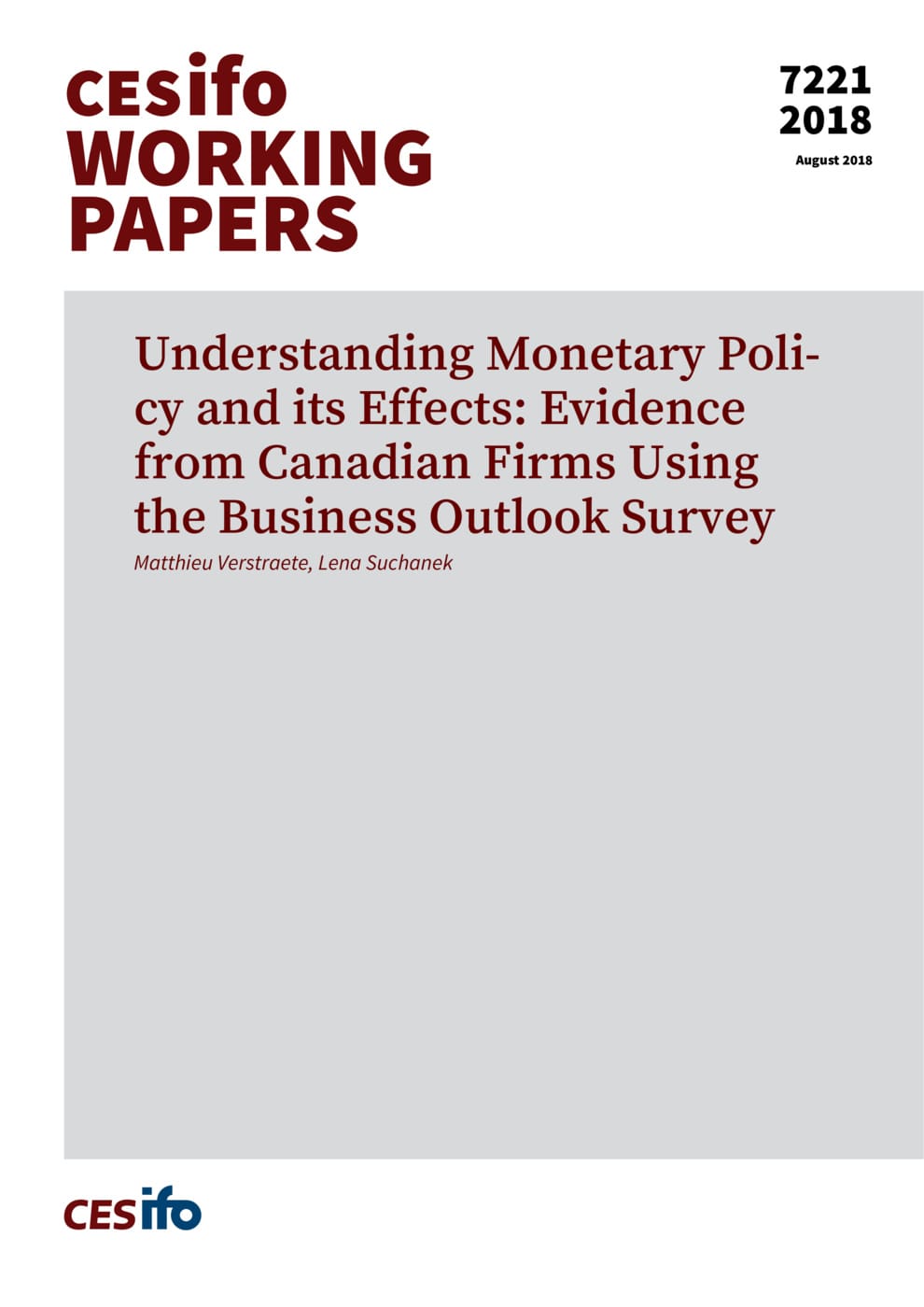Understanding Monetary Policy and its Effects: Evidence from Canadian Firms Using the Business Outlook Survey
CESifo, Munich, 2018
CESifo Working Paper No. 7221

Using real time data, we show that the monetary policy rule in Canada is better described by a Taylor rule augmented with business sentiment which is captured in survey data. Stronger survey results are correlated with a significantly higher policy rate over the period of study (2001–18). Taylor rules including a measure of business sentiment have significantly better predictive accuracy. Using these modified Taylor rules in vector autoregressions and data from the Bank of Canada’s quarterly Business Outlook Survey, we study the impact of monetary policy on firms’ expectations of sales and prices, financing conditions and investment decisions. Given our short sample, we focus on estimates of firms’ responses to monetary shocks obtained by local projections (Jordà 2005). A 100-basis-point shock in the Bank’s target rate leads firms to expect significantly lower sales and slower output price growth, report tighter credit conditions and lower investment intentions. Results are robust to using Champagne and Sekkel’s (2018) new monetary policy measure.
Monetary Policy and International Finance
Empirical and Theoretical Methods